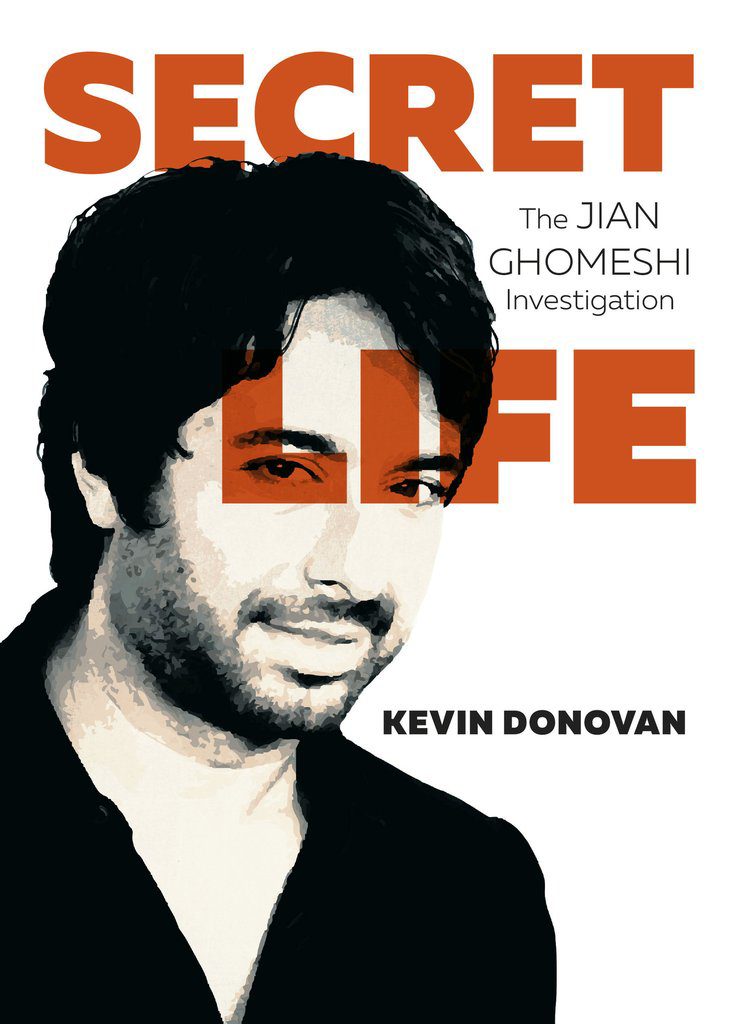How Kevin Donovan investigated the secret life of Jian Ghomeshi
By Joe Smith-Engelhardt
The journalistic and police investigations and subsequent trial and acquittal of disgraced CBC radio host Jian Ghomeshi’s sexual assault cases were very difficult for the public to grasp. Many key details were left out of initial coverage due to legal reasons, until now. Toronto Star reporter Kevin Donovan’s book Secret Life: The Jian Ghomeshi Investigation gives more of a voice to the victims and explains how the story, which he worked on with Canadaland’s Jesse Brown, was reported.
This interview has been edited and condensed for clarity.
J-Source: Why did you choose to do a book?
Kevin Donovan: A book is so much larger and offers you the opportunity to delve into characters. You really couldn’t do something like this in an article. It’s just better to put it in a book form, which I’ve only done a few times in my 30-year career. But I think this time, it really called out for that.
J-Source: You were quite graphic in your descriptions of the assaults. Did you ever think while writing this book that it would be too much for readers?
Donovan: I was concerned about that, and actually in some of the cases I have sort of toned it down a little bit. But I thought it was important for people to understand what some of these women say they went through and doing it in their own words is the best way to do it. I think people watching the trial and then comparing some of the original stories we published at the Star had a sense that maybe the strongest cases did not go forward to the courts and I think that’s true.
J-Source: A topic you bring up frequently throughout the book is why women don’t report their sexual assaults to police. What do you think needs to be done to make women feel more comfortable reporting assaults to the police?
Donovan: I think the effect of the Ghomeshi case really set that back a bit. Marie Henein was pretty strong in her attacks on the women’s credibility. So, I think two things: One, I think the cases needed to be investigated better. I think if the police had done a better job on that then (the women in the Ghomeshi case) would’ve had more success in court and other people who would want to come forward would understand that the system not only said that it has your back but it actually does have your back by asking the tough questions.
Police, sexual assault investigators, crown attorneys certainly all need better training than they get. It’s very difficult to investigate because unlike, say, a financial crime there is often no documentary evidence. It really is one person against the other.
I also think that before you even get to the level of the justice system, there has to be better protocols at places like universities or corporations.
The ultimate goal is for these things not to happen. If they do happen you have to find a way to listen to the people alleging they’ve been victimized and then hopefully bring them forward to the justice system.
J-Source: Do you think Ghomeshi will ever have a career in media after all of this?
Donovan: I don’t think he’s going to have a career in Canadian media but I think he has a lot of talent and I can imagine him in another country getting work. He’s got to do something to support himself. Once you get beyond the allegations that brought him down there’s also a sadness from a lot of people who enjoyed listening to him and enjoyed the interviews.
Personally, I think for him to resurrect himself he would have to give a full apology. He’d have to talk to people and say, “I’m going through this therapy and apologized for Kathryn Borel and I want to apologize to these other women.” Only then can he start rebuilding.
Editor’s note, Nov. 1, 2016: A previous version of this story included a quote that was unclear in the audio recording. In the interest of clarity, we have since removed it. We apologize for the error.
Joe Smith-Engelhardt is a freelance writer and student journalist at Humber College in Toronto.

